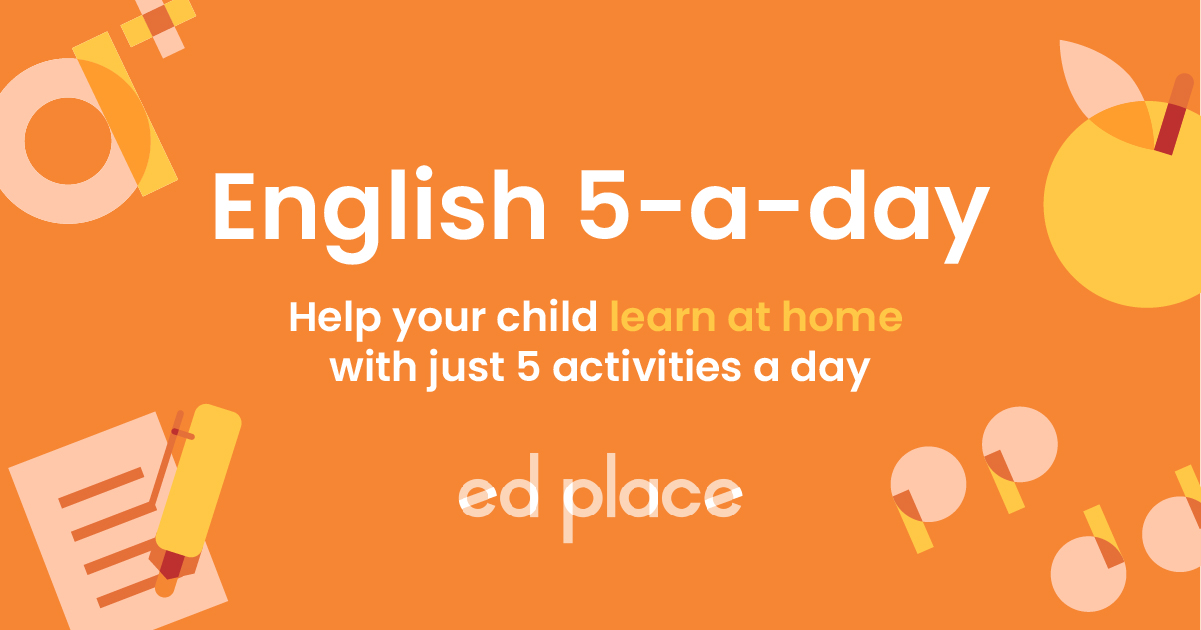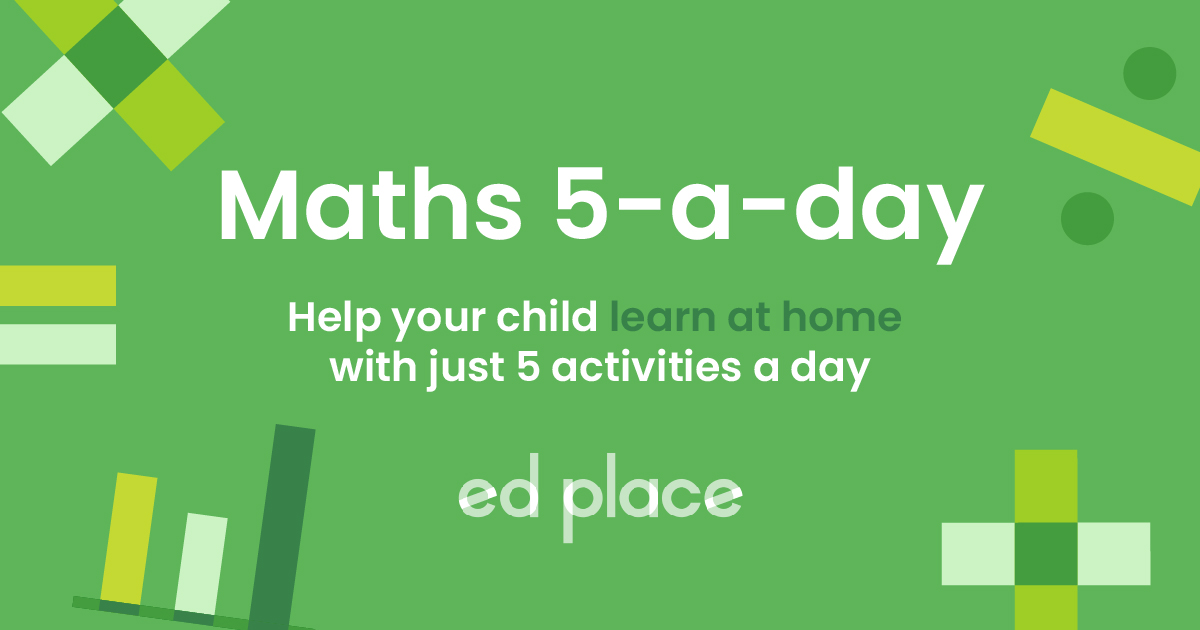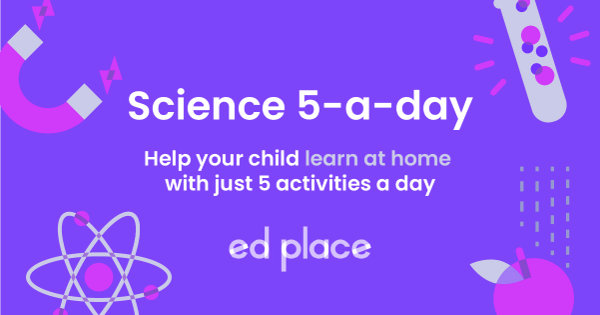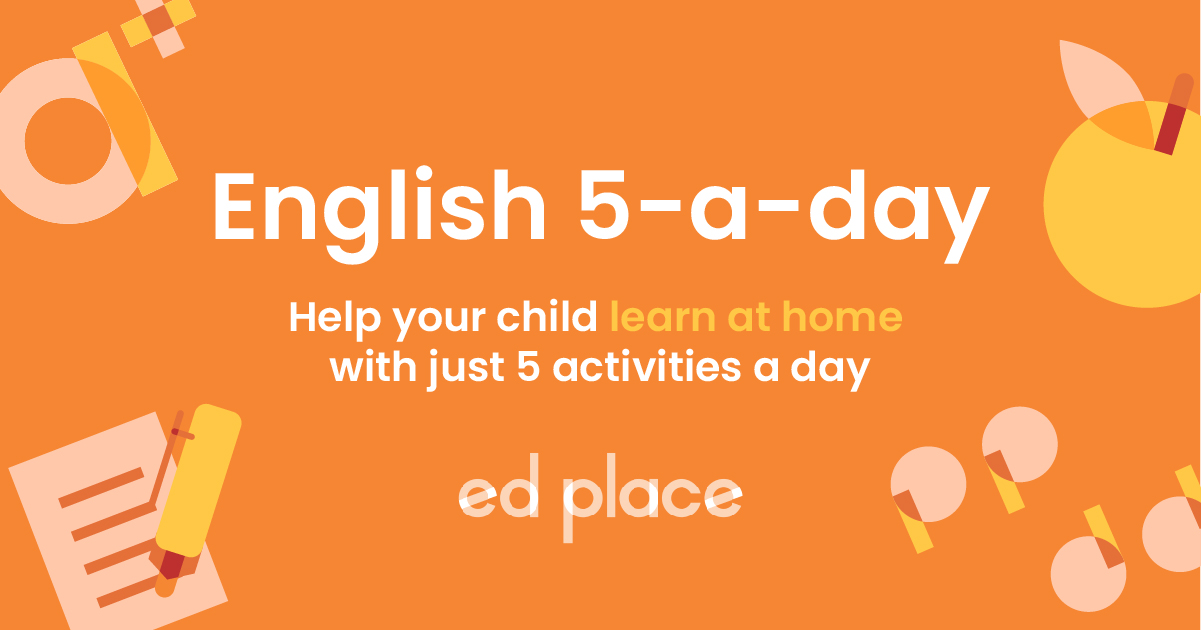
EdPlace's Year 4 Home Learning English Lesson: Adding Prefixes
Looking for short lessons to keep your child engaged and learning? Our experienced team of teachers have created English, maths and science lessons for the home, so your child can learn no matter where they are. And, as all activities are self-marked, you really can encourage your child to be an independent learner.
Get them started on the lesson below and then jump into our teacher-created activities to practice what they've learnt. We've recommended five to ensure they feel secure in their knowledge - 5-a-day helps keeps the learning loss at bay (or so we think!).
Are they keen to start practising straight away? Head to the bottom of the page to find the activities.
Now...onto the lesson!
Adding prefixes to root words...
The English language includes a vast array of tricky spellings and vocabulary. Fortunately, it isn’t necessary for us to learn it all since many words come from the same root or word family. Understanding how words are related to each other can help with spelling as well as extending our vocabulary.
Having a good knowledge of different prefixes will be enormously helpful to your child in getting to grips with the spelling and meaning of new words. That is where this lesson comes in!
Many children will be using some prefixes and suffixes correctly in their writing without even realising they are using them! We're sure that if you follow this article through, your child will be able to:
1) Understand how prefixes are applied to root words
2) Extend our knowledge of vocabulary
3) Apply prefixes to form new words
Step 1: What's a root word?
A root word is a basic word that has no letters added before it (a prefix) or after it (a suffix). It is called a ‘root’ because it forms the basis on which to build a larger and more complex word. If you know just a few root words, you can expand your vocabulary to include many new words by simply adding prefixes or suffixes.
For example, the root word ‘friend’ can be built on by simply adding a few letters to make ‘friendly’, ‘unfriendly’, ‘friendship’, ‘befriend’ or even the slang term used for social media of ‘unfriend’.
Step 2 - Word families!
A word family is a group of words that share a common root word or letter pattern. A word family that includes the same root word will have similar or related meanings.
For example, the root word ‘help’ means to give aid or assistance. The words ‘helpful’, ‘helper’, ‘unhelpful’ and ‘helpless’ are all in the same word family. Can you see how their meaning is related to the root word?
Step 3 - What's a prefix?
A prefix is a group of letters that is added to the front of a root word, altering its meaning. After all, the prefix ‘pre’ means ‘before’! Usually, the prefix is added without changing the spelling of the root word. For example, if we add the prefix ‘dis’ to the word ‘agree’, there is no change to the spelling of the root word:
dis + agree = disagree
Most prefixes mean the same thing when they are added to different words, as in the use of the prefix ‘super’: a supermum is a superhero who is able to use her superpowers to look after the children, care for her home, go to work and even do her shopping at the supermarket! What do you reckon the prefix ‘super’ means then? It means ‘over’ or ‘above’ what is the norm.
There are several prefixes that are commonly used to indicate a negative meaning, so it’s a good idea to know which ones to use with which words.
un – is probably the most common one, for example, unhappy, unwashed, uneaten
dis – is often used before a vowel, but not always, for example, disappoint, disagree, disconnect, disobey
mis – as in misbehave, misspell, mislead
in – as in inactive, incorrect, inaccurate
il – is used only before an l, for example, illegal, illegible
im – is used only before an m or a p, for example, immoral, improper, impossible
ir – is used only before an r, for example, irregular, irrational
Other common prefixes
Here are some more prefixes that your child needs to know in Year 4:
re - this means ‘again’ or ‘back’, eg. We might have to redo a piece of work or refresh the internet connection.
sub - this means ‘under’, as in submarine or submerge.
inter - this can mean ‘between’ or ‘among’, eg. An interaction happens between people or international relationships are between several countries.
anti - this means ‘against’, as in antiseptic or antibiotics, which fight against illnesses.
auto - this means ‘self’ or ‘own’, as in autobiography or automatic, which means done by itself.
Prefixes relating to number
Some commonly used prefixes come from the Latin or Greek numbering systems and can be really useful in helping with spelling, or even in your child’s maths work.
The following are all commonly used:
uni - one, eg. A unicycle has one wheel, a unicorn has one horn, universal means everyone included as one being.
bi – two, eg. A bicycle has two wheels, a biped has two legs, binary is the counting system used by computers that is based on only two numbers.
tri – three, eg. A tricycle has three wheels, a tripod has three legs, a triangle has three angles and a triceratops is a dinosaur with three horns.
quad – four, eg. A quadrilateral is a shape with four sides, a quadruped has four legs and a quadrangle is a courtyard with four sides.
To hyphen or not to hyphen?
Hyphens are very rarely added between a prefix and the root word, but occasionally they're needed in order to avoid confusion. Sometimes, when a prefix ends in a vowel and the root word begins with a vowel, the new word becomes easier to read with the addition of a hyphen.
For example, de + ice makes the word ‘deice’ but this is much easier to read if a hyphen is added: de-ice.
Or semi + invalid becomes ‘semiinvalid’ but is easier to read as ‘semi-invalid'.
The prefix ‘re’ is often used with a hyphen to avoid confusion with another word. For example:
It took her ages to recover from her illness.
It took her ages to re-cover her sofa.
Step 4 - Now it's your turn!
Why not have a go at these questions together, to check your child’s understanding?
Which is the correct prefix to add to the words below to indicate a negative meaning? Then, can you think of a suitable word that hasn’t already been included in this lesson that uses the following prefixes correctly?
1.honest
2. legal
3. mature
4. inform
5. probable
6. re
7. sub
8. inter
9. super
10. anti
11. auto
Where would you put a hyphen in the two sentences below?
12. I had to relay the tiles on the kitchen floor while he was running the relay at school.
13. He had to resign from the job because he had forgotten to resign the contract.
Step 5 - Show what you know
We hope your child is feeling more confident with prefixes! If so, now is the perfect time for you to put them to the test. Here are some activities which will help to consolidate their learning. We recommend doing them in this order so that the learning builds progressively.
All activities are created by teachers and automatically marked. Plus, with an EdPlace subscription, we can automatically progress your child at a level that's right for them. Sending you progress reports along the way so you can track and measure progress, together - brilliant!
Activity 1: Know Your Prefixes: ad- and al-
Activity 2: Know Your Prefixes: sub-
Activity 3: Revise Root Words: Adding Prefixes 1
Activity 4: Revise Root Words: Adding Prefixes 2
Activity 5: Revise Root Words: Adding Prefixes 3
Answers
1. dis - dishonest
2, il – illegal
3. im – immature
4. mis – misinform
5. im – improbable
6. There are lots to choose for these answers. Here are a few examples: reuse, redirect
7. subhuman, subheading
8. interview, intervene
9. superstar, superman
10. antivirus, anticlockwise
11. automobile, autograph
12. I had to re-lay the tiles on the kitchen floor while he was running the relay at school.
13. He had to resign from the job because he had forgotten to re-sign the contract.
Keep going! Looking for more activities, different subjects or year groups?
Click the button below to view the EdPlace English, maths, science and 11+ activity library
All English, maths and science from Year 1 - GCSE








